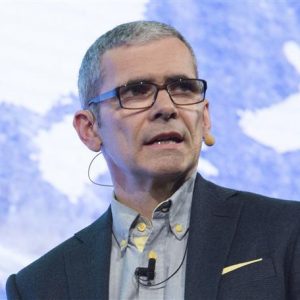Resilience has become a defining trait of success in a world filled with crises, but what are the traits of super-resilient leaders? Guest writer Ade McCormack investigates…
To understand what defines a super-resilient leader, we first need to understand what we mean by the term ‘leader’. Some definitions:
- Leader – the person who leads or commands a group, organisation, or country
- Lead – causing a person (or animal) to go with one by holding them by the hand, a halter, a rope, etc.
- Command – an authoritative order
We might infer that there are two styles of leadership, namely coercive and collaborative.
Collaborative feels attractive. People tasked with delivering on the leader’s edicts tend to warm to a more inclusive and respectful approach. We also need to consider the environmental dynamics in which leadership is required. This typically ranges from steady state through to chaotic. When the building is on fire, I would be happy to follow someone, no matter how gruff, if they know a route to safety. In fact I would be more than happy to skip the pre-journey team rah-rah meeting.



It’s Not That Simple
Again, leadership is context sensitive. Unless the leader of a new start-up is willing to adapt their approach, they will not be the most appropriate leader when the organisation becomes publicly traded.
If we look once more at resilience, we see that by definition it is the capacity to recover quickly from difficulties. But in a steady state environment, there is no need for resilience.
If the market has always liked your products, or your citizens enjoy a safe and satisfying existence, then the role of the leader is to simply ensure that the machine, whether that be a factory or a society, ticks over smoothly.


Process Junkie?
One of the goals of the industrial era was to cultivate a kind of ‘synthetic certainty’, not least because there is a cognitive burden associated with unpredictability. Citizens and shareholders do not respond well to carrying this burden. This synthetic certainty provided the conditions for the factory model to thrive and so it was adopted by both business and government.
But of course, we are no longer in the industrial era – though some business and societal leaders operate as though this was the case. That is all they know. That is what they were fed at business school. However, the arthritic command and control process-oriented factory model is no longer fit for purpose.


Work and life became a collection of processes. Taylorism, BPR, Lean and Six Sigma were the goddesses of the industrial era.



Hyper Uncertain?
Increased connectivity brought about by global supply chains and the Internet has transitioned us from the era of synthetic certainty to one of hyper uncertainty. The old approach to leadership is no longer fit for purpose. This is compounded by the increased jitteriness of shareholders and citizens.
But as a leader you might have anticipated this and built resilience into the factory. You embraced the 4th industrial revolution (4IR) mantra and digitalised your operation with 3D printing, IoT, AI etc., etc. But even a digitalised Titanic, one that can detect icebergs, is no match for air travel. Throwing tech at an old school model doesn’t turn it into Amazon.



Super-Resilience
I believe we need super-resilient leaders to build super-resilient organisations. In broad terms, this means building an organisation that doesn’t just simply adapt to unpredictable circumstances, it becomes stronger with each encounter.
Unlike the inert factory, a super-resilient organisation is a living, sensing program.
It observes, it learns, it adapts and it acts. It has no idea what will happen tomorrow, though it is prepared for it. Its primary focus is on what is happening now and how to create the most favourable outcome from the current situation. This is less about long lunches and shareholder presentations and more about continuous aerial dogfights.


Profit Is So Overrated
The trick to preparing for tomorrow’s unknown is by focusing less on profit making and more on asset building. Assets are a buffer against an unknowable future and they are also long-term sources of cash.
I won’t go into detail here on how to build a super-resilient organisation other than to say that people are key and innovation needs to trump process engineering.
We need super-resilient leaders to architect such super-resilient organisations. Such leaders:
- Know how to attract and retain the best talent
- Understand that risk management means risk acquisition
- Recognise that the primary business of their organisation is the creation of new business models. Radical parallel adaptability is important
- Weave innovation into the cultural fabric, as opposed to encapsulating it within a department
- Ensure the behaviours of their people are finely tuned to the needs of the market
- Are relentless asset builders
Please note that this equally applies to the public sector.


Return of the Leadership
These are a set of bold moves and will put the resilience of any leader to the test. But this is what leadership has looked like for most of our time on the planet. It is just that in the last three centuries, we have whittled leadership down to presiding over a set of predictable processes.
Such a model has tended to attract the wrong sort of leader, one who is remuneration and power-centric and focused on the short-term to the total exclusion of the longer-term.
This behaviour is encouraged by the pressures exerted by stock markets and political machinery. Thus like digital disruption, and biological disruptions such as Covid-19, these are simply forces that great leaders need to contend with.
Ideally these institutional forces will be overhauled. Super-resilient societies comprise super-resilient organisations. These of course require super-resilient leaders. I hope all players in the leadership ecosystem recognise what needs to be done.
About Our Guest Writer
Ade McCormack
Disruption Strategist
Ade McCormack is a former technologist who today is focused on helping organisations and societies thrive in the digital age. He has worked in around forty countries across many sectors. His focus is largely on leadership. He has lectured at MIT Sloan School of Management on digital leadership and currently works with Cambridge University on their executive education programmes. Ade is a former FT and CIO columnist, as well as having been a former CIO100 judge. He has written six books on digital matters. He is also the founder of the Disruption Readiness Institute. His work focuses around creating super-resilient organisations.











